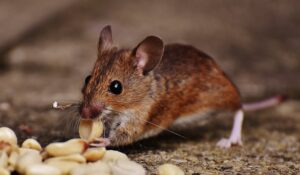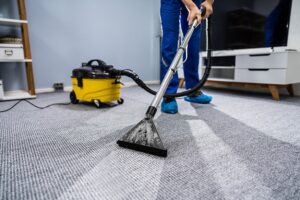
Animals can be a nuisance when they damage property. Deer may nibble on your flowers, vegetables, and crops, leaving torn buds and droppings the size of peas. Rabbits leave uniform nibble marks on plants and piles of droppings. Raccoons can tear and chew through air ducts, wood, shingles, wires, insulation, etc.
Remove Attractants
Animals can harm your home and yard on an urban, suburban, or rural property. This is why it’s essential to have animal damage management and identify the attractants that are drawing unwanted wildlife to your property and then take steps to eliminate them.
Food sources are often the first thing you should look for. If you have an edible garden, inspect the plants for signs of animal interference like bite marks, gnawings, scratchings, diggings, mounds, and droppings.
Avoid feeding wildlife, as this can lead to a buildup of unruly animals that have outgrown their natural predators. Well-fed animals also give birth to a larger litter and can increase population levels beyond the biological station. Stacked firewood, junk piles, weedy or overgrown flower beds, and gardens with heavy mulch are common snake attractants.
Install Fences
Beyond keeping animals out of your garden, a good fence has other benefits. It can also prevent animal damage to your property’s shrubs, trees, and other plants.
Some of the best fencing options are wooden post-and-rail fences and wire fences. These can be topped with chicken wire or metal hardware cloth to prevent animals from chewing on them.
For burrowing pests like gophers, voles, and woodchucks, a 4-foot fence with the top 18 inches unattached will prevent them from climbing over. For tunneling problems, a 2-foot wide apron buried several inches under the soil or electric wire placed a few inches outside a fence will discourage them from tunneling.
For climbers, including squirrels and raccoons, spraying scented castor oil and soap on your fence may deter them from attacking.
Install Termite Barriers
Termite barriers are a type of treatment that creates a zone around your home or structure. The barrier is made of cement sand that will block the termites from invading the area. This is a perfect option during the construction of a building.
The best termite barrier products have what is known as a transfer effect, which means that as worker termites pass through the barrier, they will pick up a lethal dose of it and return to the colony to kill off the rest of the population. This is a lot more effective than repellents, which only deter termites and do not kill them off completely. The liquid-based chemical used in the barrier is similar to those used in pet flea treatments, so it poses no immediate risk to children or pets.
Keep Pets Indoors
Pet owners who have taken steps to mitigate risk can enjoy a rewarding relationship with their furry friend without worrying about wild animal damage. Proper nutrition and exercise, keeping vaccinations current, and providing safe and comfortable living conditions all affect your pet’s happiness and safety.
Wild animals seek food, shelter, and water and are attracted to garbage, bird feeders, and pet food. They can gnaw through electrical wires and enter homes, causing property damage and introducing diseases, parasites, and odors. They may also spread rabies, which puts people and pets at serious risk. Taking precautions to keep wildlife away is a smart move for all property owners.
Invest in Pest Control
Investing in pest control is one of the best ways to prevent animal damage. This shows that you are a proactive property owner and will help protect your investment. Additionally, if you ever decide to sell your property, having regular pest control services will keep it in better condition and increase its value.
Rodents and insects can cause significant damage to a property, from chewed wires to burrowing underneath a foundation. They can also spread pathogens through their bites, feces, and urine. This can be a problem for families, especially those with young children or weakened immune systems. They can also trigger asthma attacks and other respiratory problems in susceptible people. Preventive pest control can save you the cost of costly repairs and health-related issues.







